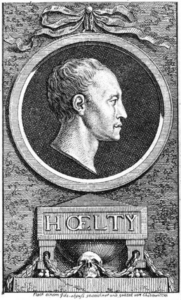To the moon
(Poet's title: An den Mond)
Set by Schubert:
D 468
[August 7, 1816]
Was schauest du so hell und klar
Durch diese Apfelbäume,
Wo einst dein Freund so selig war
Und träumte süße Träume?
Verhülle deinen Silberglanz
Und schimmre, wie du schimmerst,
Wenn du den frühen Totenkranz
Der jungen Braut beflimmerst!
Du blickst umsonst so hell und klar
In diese Laube nieder.
Nie findest du das frohe Paar
In ihrem Schatten wieder!
Ein schwarzes feindliches Geschick
Entriss mir meine Schöne!
Kein Seufzer zaubert sie zurück,
Und keine Sehnsuchtsträne.
O wandelt sie hinfort einmal
An meine Ruhestelle,
Dann mache flugs mit trübem Strahl
Des Grabes Blumen helle!
Sie setze weinend sich aufs Grab,
Wo Rosen niederhangen,
Und pflücke sich ein Blümchen ab
Und drück es an die Wangen.
Why are you peering so brightly and clearly
Through these apple trees,
Where your friend was once so happy
And dreamed sweet dreams?
Veil your silver glow
And glisten as you glistened
When you illuminated the untimely funeral wreath
Of my young bride and shimmered over it!
There is no point you looking so brightly and clearly
Down through this foliage;
You will never find the merry couple
Again within its shade!
A black, inimical fate
Tore my beauty away from me!
No sigh will act as a spell to summon her back,
Nor will any tears of longing!
Oh, if she were ever to wander in this direction
Towards my resting place,
Then immediately use your dull rays to make
The flowers on my grave bright!
Let her sit weeping on my grave,
Where roses hang down,
And let her pick one of the blossoms
And press it to her cheek.
All translations into English that appear on this website, unless otherwise stated, are by Malcolm Wren. You are free to use them on condition that you acknowledge Malcolm Wren as the translator and schubertsong.uk as the source. Unless otherwise stated, the comments and essays that appear after the texts and translations are by Malcolm Wren and are © Copyright.
☙
Themes and images in this text:
Apples and apple trees Black Cheeks Dreams Eyes Fate, luck and lotteries Flowers Graves and burials Laments, elegies and mourning Leaves and foliage Longing and yearning Magic and enchantment Night and the moon Rays of light Roses and pink Shade and shadows Sighs and sighing Silver Sweetness Tears and crying Veils Walking and wandering Wreaths and garlands
Human beings have always had a propensity to see the moon as an animate being. It is extremely easy to tell ourselves that we can see a face in it, or, as in the case of this text, we are convinced that it is an eye in the sky. Like our own eyes, it is sometimes fully open but it sometimes appears that the eye is partially or fully closed. In many cultures eyes have been thought to emit as well as register light, and so this poet assumes that the bright rays of moonlight peeping through the apple blossom are actively looking in our direction.
When clouds pass in front of the moon, we say that its light is veiled, as if, like us, it can lower a mesh or black lace as a token of mourning. The resulting unsteadiness of the illumination reminds us of the blurred eyesight that results from crying. This poet is therefore wondering why the moon is no longer crying over the beloved in the way that he still is.
His continuing distress becomes most apparent in the third stanza, where reality becomes totally inverted. Instead of the beloved being in the grave and the poet surviving in desolate lamentation, we are now presented with an image of the bride sitting on his grave and weeping in her turn, with a plucked rose pressed to her cheek. The inversion is an indication of the stage of the writer’s grief: ‘Death should have taken me, not her’, he thinks.
☙
Original Spelling An den Mond Was schauest du so hell und klar Durch diese Apfelbäume, Wo einst dein Freund so selig war, Und träumte süße Träume? Verhülle deinen Silberglanz, Und schimmre, wie du schimmerst, Wenn du den frühen Todtenkranz Der jungen Braut beflimmerst! Du blickst umsonst so hell und klar In diese Laube nieder; Nie findest du das frohe Paar In ihrem Schatten wieder! Ein schwarzes, feindliches Geschick Entriß mir meine Schöne! Kein Seufzer zaubert sie zurück, Und keine Sehnsuchtsthräne! O wandelt sie hinfort einmal An meine Ruhestelle, Dann mache flugs mit trübem Strahl Des Grabes Blumen helle! Sie setze weinend sich aufs Grab, Wo Rosen niederhangen, Und pflücke sich ein Blümchen ab, Und drück' es an die Wangen.
Confirmed by Peter Rastl with Schubert’s source, Gedichte von L. H. Ch. Hölty. Neu besorgt und vermehrt von Johann Heinrich Voß. Wien, 1815. Bey Chr. Kaulfuß und C. Armbruster. Gedruckt bey Anton Strauß. Meisterwerke deutscher Dichter und Prosaisten. Drittes Bändchen. pages 182-183; with Gedichte von Ludewig Heinrich Christoph Hölty. Besorgt durch seine Freunde Friederich Leopold Grafen zu Stolberg und Johann Heinrich Voß. Carlsruhe, bey Christian Gottlieb Schmieder, 1784, pages 87-88; with Poetische Blumenlese für das Jahr 1776. Von den Verfassern der bisherigen Göttinger Blumenlese, nebst einem Anhange die Freymaurerey betreffend; Herausgegeben von J. H. Voß. Lauenburg, gedruckt bey Johann Georg Berenberg, pages 172-173; and with Ludwig Christoph Heinrich Hölty’s Sämtliche Werke kritisch und chronologisch herausgegeben von Wilhelm Michael, Erster Band, Weimar, Gesellschaft der Bibliophilen, 1914, page 172.
To see an early edition of the text, go to page 182 [260 von 300] here: http://digital.onb.ac.at/OnbViewer/viewer.faces?doc=ABO_%2BZ15769170X


